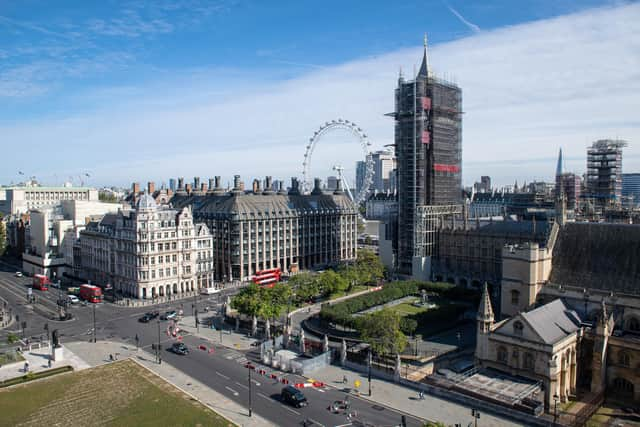Take steps to end controversial loan charge process, urges Tory former minister
Richard Fuller asked the Government to look at how to draw the loan charge process to a conclusion after warning it has led HM Revenue & Customs (HMRC) into “areas of moral hazard”.
The loan charge is an anti-avoidance measure introduced in the 2016 Budget to address tax loss from what the Treasury called a variety of “disguised remuneration” schemes.
Advertisement
Hide AdAdvertisement
Hide AdUnder such schemes, individuals – often freelancers or self-employed contractors – were paid via a third party in the form of loans, replacing part or all of their salary.


Due to loans not incurring income tax, the Government decided that those entering into such schemes, which dated back to 1999, had been skirting their tax payments and demanded income tax be paid on the full amounts received over that period.
Speaking at Treasury questions, Labour MP Ruth Cadbury (Brentford and Isleworth) told the Commons: “Given that HMRC has acknowledged there have now been 10 suicides connected to the loan charge, can the minister confirm whether loan schemes like those the loan charge was set up to stop are still in operation?
“And what’s the Government doing to stop further such tragedies?”
Advertisement
Hide AdAdvertisement
Hide AdTreasury minister Victoria Atkins replied: “On the point about the deaths she raises, and I do understand why she raises it, we have made referrals to the Independent Office for Police Conduct in relation to those 10 events.
“The first referral was in March 2019. Of the eight concluded investigations there has been no evidence found of misconduct by any HMRC officer but we are very sensitive to the pressures that people are under, which is precisely why we have these extra support teams in place.
“They are teams of trained advisers who, where appropriate, can support taxpayers towards voluntary and community organisations that can help, and of course people can ask for help such as Time to Pay as well.”
Mr Fuller added: “Whatever the hopes at the introduction of the loan charge scheme the process has now gone on a considerable amount of time, raising questions about its efficacy and drawing HMRC into areas of moral hazard.
Advertisement
Hide AdAdvertisement
Hide Ad“So would (Ms Atkins) take a look at ways in which this particular scheme at HMRC can be drawn to a conclusion?”
Ms Atkins, in her reply, said: “The difficulty we have is there’s a large sum of money still outstanding from these disputes.
“We’ve had an independent review into this issue, we’ve been able through that review to reduce the number of people affected by this but there does still remain the issue of this outstanding tax, so I’d encourage anyone who is affected by these historic issues to please talk to HMRC so that we can find a resolution for both sides.”
After a review by Lord Morse, the Government agreed to reduce the tax bill of 30,000 people caught up in the loan charge.
Advertisement
Hide AdAdvertisement
Hide AdThe report said HMRC should only chase tax repayments from those involved in the scheme up to 2010 – a roll-back of 11 years from the initial 1999 cut-off that the Treasury has accepted.
But MPs have urged further actions as they believe the law on the loan charge was not settled until 2017.